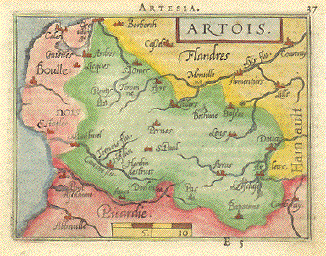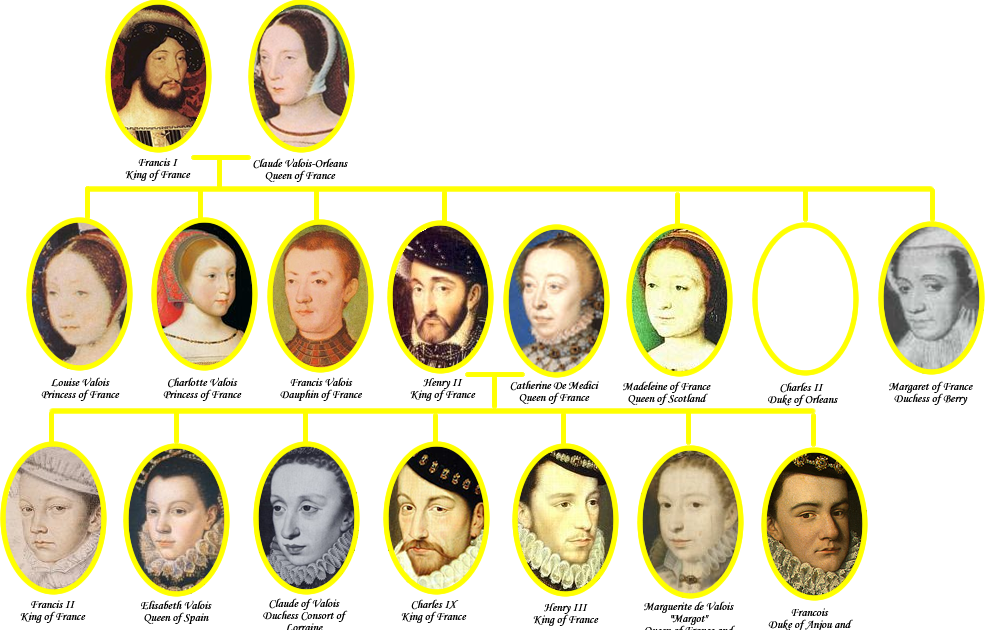<center>
[image source](https://ipfs.io/ipfs/QmXoypizjW3WknFiJnKLwHCnL72vedxjQkDDP1mXWo6uco/wiki/National_emblem_of_France.html) </center>
France was becoming more and more clearly defined as a nation after the Hundred Years War. The *Ancien Régime* was being replaced by a more centralised structure of rule, through the monarchy, but the integration of territories into a centralised system was a slow and fractured process. For a long time it remained an area of social, economic, linguistic and governance diversity. There was more resistance to the prospect of integration by the people in some territories, and less resistance in others. Some territories merged into the new ‘main’ territory of France more quickly than others. This process of integration and absorption into one solid nation involved asserting one dominant system into structures such as economics, law, rulership, and the recognition of what was ‘quintessentially French’ about the nation in areas of society, religion, language, loyalty and national pride. By the end of the Hundred Years War, in 1453, there was not yet a solid ‘nation’ of France, but there was the impetus by both the monarchy and parliament to solidify the territories into one centralised state, to be ruled by the king of the French people, and identified as a nation both nationally and internationally.
<center> 
*map of the growth of the Plantagenet empire, 12th century*
[image source](https://commons.wikimedia.org/wiki/File:France_1154-fr.png) </center>
The process of creating a ‘national consciousness’ had begun several centuries earlier during the early twelfth century, when the ‘king of the Franks’, Louis VI (Louis the Fat), used instead the title of ‘King of France’. This
>replacement of the concrete (the Franks) by the abstract (France) marked a dramatic shift in the nature of the monarchy and heralded the development of a national consciousness, because the monarchy sought to get agreement on the very existence of an entity over which it ruled.<sup>1</sup>
The king also asked for the territorial princes to do homage to him, to cement his place as overlord. During the next two centuries France began to define itself even more, by expelling all non-Christian communities from its territories, especially the Jews. He sought to establish firmly the belief of one religion for France, and encouraged the use of local saints by worshippers; this was one of the first steps of cultural integration between all the territories. ‘The King of France ruled over a polyglot empire, with several major languages (Flemish, Breton, French, Occitan, later, German) and a host of dialects and *patois*.’<sup>2</sup> But Francis I saw to it that the French language became the national language used, taking steps to break the dominance of the traditionally-used Latin by the church. It also paved the way for French to become the dominant language taught, written and spoken, as the church traditionally held the domain of education and social standards. His position as overlord also allowed the French king to gain key supervisory roles, such as over inheritance and succession, and major disputes, which in turn gave him the power to gain royal territory through confiscation or marriage – which included the system of *apanage*, a very effective way for the monarchy to gain and absorb property into large portions of royally-held land. Philip IV (Philip the Fair), who ruled during the late thirteenth to early fourteenth century brought in steps to develop a consultation process with territorial lords to levy taxes needed by the king to fund projects he considered affected all his subjects, such as military defense. The king needed the cooperation of the nobles as he did not have the right to tax their serfs. By the time Louis XI (Louis the Prudent) was in power, during the second half of the fifteenth century, there was a national tax revenue system in place. This system could vary between territories in things such as tax rates and exemptions, but there was a definite nationally-based expectation of tax obligations to the crown. The main reason for needing a national tax system was to fund the military endeavours which the monarchy engaged France in. Defence was a costly process, and the Hundred Years War had been one series of engagements which had taken its toll on severely depleting state finances.
<center>
*King Louis XI, at court*
[image source](http://www.alamy.com/stock-photo-king-louis-xi-of-france-n1423-1483-king-of-france-1461-83-and-his-95456224.html) </center>
Francis I stated in 1515, “the government of a kingdom consists of three things: firstly in force, secondly in the matters of finance and thirdly in justice.”<sup>3</sup> Although, in the matter of law and justice within provincial parliaments: ‘Each Parlement [sic] claimed sovereign jurisdiction in its own territory and not all edicts registered at Paris were registered in the provinces. They thus remained unimplemented.’<sup>4</sup> It was definitely proving to be a slow and disjointed process of integration, especially with problems such as: “… the idea of publishing a single code of French law discussed at the Assembly of Notables in 1517 ran up against the profound divergences within the law itself.”<sup>5</sup> And this was not the only problem struck, as the monarchical move towards a centralised state of royal power was also a move towards a state of absolutism. This found resistance from a group of nobles who in 1465 formed the League of the Public Weal, its members wishing to resist the centralising of monarchical authority by Louis XI and remaining as feudal states, with their own measure of independent power; but the League was never successful. During the process of becoming a centralised state, feudal vassals became royal subjects. ‘In 1480 there were around 80 great fiefs. By 1530 around half of these still existed. The rest were in abeyance or held by members of the royal family.’<sup>6</sup> The integration of territories took place sporadically: 1453 saw Comminges absorbed into the state, then in 1473 Rodez and other domains of the Armagnacs were integrated, followed in 1477 by Burgundy & Picardy-Artois, in 1481 it was the turn of Provence and other domains of the house of Anjou, then during the 1490s Brittany was absorbed, and later still, in 1523 the domains of Bourbon & the Bourbon-Montpensier families were integrated, although not all went smoothly. ‘The absorption of Artois proved to be an impossible undertaking and had to be renounced in 1493.’<sup>7</sup> Some territories were confiscated, absorbed or otherwise obtained by the crown for reasons such as treason, marriage, inheritance, and some by negotiation or war. As these formerly-independent territories and apanages slowly disappeared, Governors were sent to these provinces, as representatives of the king, with their general functions being ‘guard, *tuition* and defense’.<sup>8</sup> By 1498 there were 10 territories with these provincial governors installed, ‘Provence, Dauphiné, Languedoc, Guyenne, Champagne, Burgundy, Picardy, Ile-de-France, Normandy and Brittany.’<sup>9</sup> Their roles were rather loosely defined, but it was understood that they were to ‘act as the king would do’. ‘By 1560, the stage had not yet been reached when governmental collapse was out of the question but the nucleus of a stable system had been established.’<sup>10</sup>
<center> 
*Artois, cir. 1580*
[image source](http://www.philographikon.com/mapsfrance2.html) </center>
Meanwhile, the king was cultivating a cultural centre around himself, in the region of Ile-de-France. This location advantageously allowed the king to be more accessible to the very nobles he wanted to bring under his control. The growing pomp and splendour of this French Court became a draw-card for its French subjects, inspiring in a way a sense of familial loyalty; ‘from 1460-1560 the crown had proved remarkably successful in drawing into its circle … a wide range of princes, great aristocrats, military men and administrators which constituted a royal ‘affinity’.’<sup>11</sup> The king was accessible, visible, seen as a hero and saviour of the French people, supposedly chosen by God and endowed by Him with ‘mystical healing powers’ to cure the sick. For the growing number of nobility, they began to realise that royal court was the place to see and be seen; a source of power and wealth and where alliances could be cultivated; strategically a better ally than a competitor. The king offered patronage to those who were his ‘favourites’, and began a pension scheme, which ‘acted as a form of reward for faithful service to the crown’.<sup>12</sup> There were clear advantages to being *with* the king, rather than opposed to this powerful leader. France was not the only territory establishing, or having established, a monarchical nation and encouraging the advantageousness and patriotism of cultural Court identity. England, Portugal and Spain were also seeking ‘national’ identities. In fact, the Hundred Years War had been in part a catalyst for the definition, growth and solidification of both the French and the English nations. Other European territories were still empires, and would not begin to become ‘nations’ until centuries later.
<center> 
*French monarchy - house of Valois, Francis I (ruled from 1515-1547)*
[image source](http://internationalmonarchism.blogspot.co.nz/2008/10/le-maison-de-valois-angoulme.html) </center>
After the Hundred Years War, which ended in 1453, definite changes had begun to take place within the traditionally-independent territories of France. Progress towards a national state was slow and the steps intermittent but there was a definite process of integration, led by the monarchy, and eventual acceptance by its subjects. It wasn’t a smooth changeover, and some territories were harder to win over than others; and it took the people in those areas longer to accept the metamorphosis of their country. Being classed as a ‘nation’ was both an internal view and how France was perceived internationally. It was a blending of what could be quite diverse territorial differences into something which was gaining recognition to certain degrees as being ‘uniquely French’, in areas of culture, legal system and taxation, rulership, religion, linguistics and patriotism. The king had a royal court system whereby he inspired the nobles to work with him closely, while rewarding them both financially and socially. The king had also become the protector of the people, whereas it used to be that the nobles protected the monarchy. Implementing a stratagem of national identity had begun well before the beginning of the Hundred Years War, but until Louis the Prudent came to the throne there was no real concerted attempt to become the nation of France.
----------
*This essay was one I wrote as an assignment, while obtaining my University degree. I have included the reference list and bibliography - reference materials I used while writing - just as I’d had to for its submission. It has never before been published anywhere public, though. Images have been added for visual interest.*
References:
1. Collins, James B. "State Building in Early-Modern Europe: The Case of France." *Modern Asian Studies* 31 3 (1997): pp. 606.
2. ibid: pp. 604.
3. Potter, David. *A History of France, 1460-1560 : The Emergence of a Nation-State*. New Studies in Medieval History. Houndmills, Basingstoke: Macmillan, 1995, pp. 34.
4. ibid: pp. 115.
5. ibid: pp. 5.
6. ibid: pp. 110.
7. ibid: pp. 111.
8. ibid: pp. 118.
9. ibid: pp. 120.
10. ibid: pp. 284.
11. ibid: pp. 58.
12. ibid: pp. 199.
Bibliography:
Collins, James B. "State Building in Early-Modern Europe: The Case of France." *Modern Asian Studies* 31 3 (1997): 603-33. Print.
Davies, R. “Nations and National Identities in the Medieval World: An Apologia.” *Revue Belge d'Histoire Contemporaine*, 34 (2004): 567-77.
Potter, David. *A History of France, 1460-1560 : The Emergence of a Nation-State*. New Studies in Medieval History. Houndmills, Basingstoke: Macmillan, 1995. Print.
<center> </center>